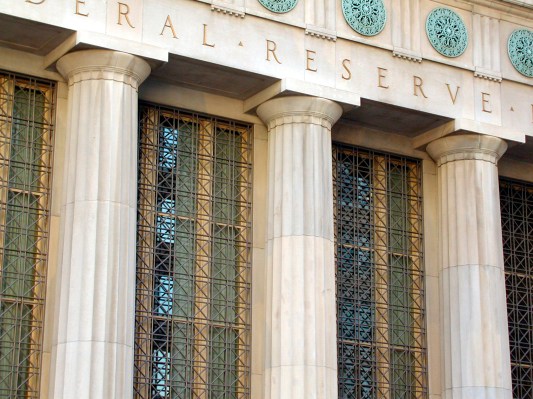The Federal Reserve yesterday raised its benchmark interest rate to a range of 0.5 percent to 0.75 percent, up from 0.25 percent to 0.5 percent. People in the business of venture-backed startups were paying attention, too, and not because of the new range, which is still super low by historical standards. It’s what the move augurs – even higher interest rates in 2017 – that interests them.
Why does it matter? Well, if you’ve founded, or invest in, early-stage startups, it probably doesn’t – yet. Enough investment capital has been raised in the last 12 to 24 months to insulate young companies and early-stage investors for some time to come. “If you’re investing behind two women and a cat, it makes no matter what the Fed is doing,” says Venky Ganesan, a managing director at the early-stage venture firm Menlo Ventures.
“There’s still a lot of money in the system that needs to go somewhere,” adds Bradley Tusk, a political strategist and investor who notes that early-stage investors began bulking up on capital earlier this year, partly in anticipation of rising interest rates.
Still, for later-stage investors and companies, the story could prove starkly different.
In recent years, operating in a near zero interest rate environment, investors who might have otherwise parked their assets in bonds and other fixed income securities began looking elsewhere for returns. Startups within spitting distance of a public offering became a popular place to dump some of that money. “People forget how unusual that is,” says David Golden, a managing partner at Revolution Ventures who worked earlier in his career as a JPMorgan exec. “The fact that capital has been so cheap is partly what has fueled the sea change in early-stage valuations since the financial crisis. Cheap equity means that you can raise millions of dollars without having to give up very much of your company.”
As capital becomes more expensive, those “bargains are going to start to retreat,” says Golden. “It won’t happen overnight, but it will happen — particularly if the Fed continues to raise rates with any cadence.”
Ganesan agrees. “If you’re a late-stage investor or a pre-IPO company, this [interest rate hike] is a warning bell,” he says. “The flood of capital that was going into these asset classes will slowly get pulled back because people won’t need to go elsewhere for yield.”
Wait, you may be asking yourself: What about widely expected regulation relief? Won’t that counter any impact from a rate increase?
Well, regulatory changes usually take a couple of years to kick in, says Golden. In the meantime, expect two things. The “IPO asset class, which hasn’t been a great performer of late, will look less attractive if you can get attractive returns elsewhere from rising interest rates,” he notes.
Acquisition targets could see lower offers for their businesses, too. “If it’s a Google or Apple that’s sitting on a lot of cash,” rate hikes don’t matter much, says Tusk. But “for an acquirer that has to take on debt, that [acquirer’s] costs will be higher, so for very big deals in particular, the offer might be lower.”
That all sounds terrible, we know. But the news isn’t all bad – far from it.
First, if valuations take a hit, that’s “not necessarily a bad thing,” notes Tusk. (Plenty of price-sensitive investors would likely agree.)
Though the Fed yesterday suggested that future rate hikes are coming in 2017, these things tend to change, too. Yesterday’s hike was expected to happen nearly a year ago and was repeatedly pushed off.
Much more important to note: if the Fed does proceed with its plans to keep increasing interest rates, it will be because of other assumptions about the financial markets, including that big tax cuts, loosened financial regulations, and new infrastructure spending by a Trump administration will be a huge boon to businesses. (The Fed, which has been using historically low interest rates to goose the economy, will more or less be using these rate hikes as a way to make sure that good times don’t spiral out of hand.)
Old economy companies, including in banking and energy, stand to win the most from Trump’s expected plans. But many of the changes that Trump has been trumpeting could also benefit plenty of startups that are trying to disrupt these same industries. Fin tech companies, for example, will probably benefit nearly as much as traditional banks.
It’s all creating a bit of cognitive dissonance for VCs, Ganesan suggests. “On the one hand,” he says, “the party and the candidate who they backed lost. On the other, they now have better economic prospects for their companies and for themselves,” owing to widely expected tax breaks for the wealthy.
Says Ganesan, “The heart loses. But the head wins.”
